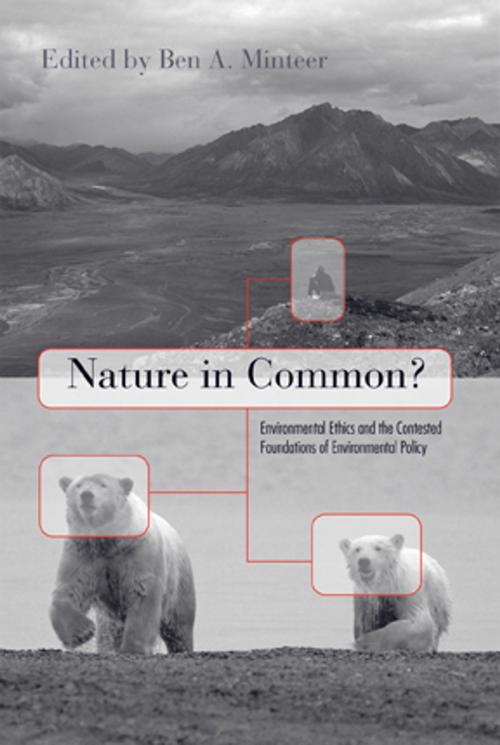Nature in Common?
Environmental Ethics and the Contested Foundations of Environmental Policy
Nonfiction, Science & Nature, Nature, Environment, Environmental Conservation & Protection, Religion & Spirituality, Philosophy, Ethics & Moral Philosophy| Author: | ISBN: | 9781592137053 | |
| Publisher: | Temple University Press | Publication: | May 21, 2009 |
| Imprint: | Temple University Press | Language: | English |
| Author: | |
| ISBN: | 9781592137053 |
| Publisher: | Temple University Press |
| Publication: | May 21, 2009 |
| Imprint: | Temple University Press |
| Language: | English |
This important book brings together leading environmental thinkers to debate a central conflict within environmental philosophy: should we appreciate nature mainly for its ability to advance our interests or should we respect it as having a good of its own, apart from any contribution to human well-being? Specifically, the fourteen essays collected here discuss the “convergence hypothesis” put forth by Bryan Norton—a controversial thesis in environmental ethics about the policy implications of moral arguments for environmental protection. Historically influential essays are joined with newly-commissioned essays to provide the first sustained attempt to reconcile two long-opposed positions. Bryan Norton himself offers the book’s closing essay.
This seminal volume contains contributions from some of the most respected scholars in the field, including Donald Brown, J. Baird Callicott, Andrew Light, Holmes Rolston III, Laura Westra, and many others. Although Nature in Common? will be especially useful for students and professionals studying environmental ethics and philosophy, it will engage any reader who is concerned about the philosophies underlying contemporary environmental policies.
This important book brings together leading environmental thinkers to debate a central conflict within environmental philosophy: should we appreciate nature mainly for its ability to advance our interests or should we respect it as having a good of its own, apart from any contribution to human well-being? Specifically, the fourteen essays collected here discuss the “convergence hypothesis” put forth by Bryan Norton—a controversial thesis in environmental ethics about the policy implications of moral arguments for environmental protection. Historically influential essays are joined with newly-commissioned essays to provide the first sustained attempt to reconcile two long-opposed positions. Bryan Norton himself offers the book’s closing essay.
This seminal volume contains contributions from some of the most respected scholars in the field, including Donald Brown, J. Baird Callicott, Andrew Light, Holmes Rolston III, Laura Westra, and many others. Although Nature in Common? will be especially useful for students and professionals studying environmental ethics and philosophy, it will engage any reader who is concerned about the philosophies underlying contemporary environmental policies.















